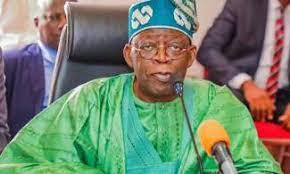Labour and its Civil Society allies have announced plans to engage government and other stakeholders on transformative governance.
This was made known during the launch of a campaign for transformative governance in Abuja Tuesday.
Speaking in an interview with journalists, a Co-convener of the campaign, Comrade Jaye Gaskiya said the move became imperative in view of the fact that Nigerian government at all levels had failed to meet the yearnings and socio-economic of the citizenry.
Gaskiya said it was unacceptable for a country with vast human and material resources to be ranked among the poorest in the world.
He said the campaign was established to reverse the negative trend and downward spiral.
He said the team, comprising the Trade Union Congress (TUC), Amalgamated Union of Public Corporation Civil Service and Recreational Service Employees (AUPCTRE) Federation of Informal Workers of Nigeria (FIWON) and the pro-Labour Civil Society organisations, would achieve this through three thematic areas namely; ensuring accessible and effective public service delivery, ensuring political education of citizens for transformative governance and promoting and enhancing human security as a panacea to the endemic insecurity in the country and ravaging poverty and devastating conditions of the people.
While saying it would engage both the Executive and Legislature, the co-convener said: “We will do advocacy visit, protest , town hall meetings, we are going to do everything necessary to make sure that they listen.
“We are very clear that the crisis facing our country today, whether political, social or economic, they are all crisis one can trace to the failure of governance and the collapse of leadership, that’s why our proposed alternative to that is for governance to become transformative.
“And I will define Transformative governance as governance that enhances the conditions of living, of working and of existence of citizens and defines the citizenship of the people and that kind of governance can only be provided by a different set of leadership, that kind of leadership has to come directly from the people who have suffered the brunt of this collapse. “So, what we then hope to achieve is that by taking this message to the people, by explaining what this transformative governance is in terms of public service delivery and in terms of our consciousness and our own awareness so that we don’t get defrauded by charlatans.
“By influencing the direction of governance in this country, it means putting pressure on the present government not only to meet their(people’s) demands, but also ensuring that we are engaged in a process that opens up the political consciousness of our citizens so that they can make the right choices at election.”
“The political education is going to be delivered in a multifaceted manner, the bulk decentralised part of that education is going to be virtual and online, because that’s how you’re going to get everybody from across the country. But then, it’s also going to be decentralised in such a way that local chapters that are members in their own localities can run the same political curriculum in physical meetings in their own localities.
“So that’s the way we plan to do the campaign. And as you’ve noticed, there are four convening categories in the campaign, two are trade unions. From the NLC we have AUPCTRE, and the entire TUC federation, and then we have the Federation of Informal Workers of Nigeria (FIWON), and we have the pro-labour civil society components.
“They are the four convening authority for this campaign. All of us are also involved in different political project which is the establishment of a political movement we are currently involved to establish a Pan Nigeria political movement that’s called the People Alternative Political movement.
“It is not a political party, but one of the decisions it will make is to become a political party or adopt a political party it want to support, because, if we want people to make choices, then we have to provide those ways for them to make their choices.
“For political office holders, we will engage the legislature, we will engage the National Assembly at the national level on many issues, particularly on public service delivery and on giving legal teeth to some of the provisions of chapter 2 of the Constitution, because now they say is not justiceable but the Constitution also says that you can make laws to realise the provision of chapter 2 just like we did with education and health.
“So, we will engage the executives in terms of their policies, and one of the policies we will engage them on is the policy of universal health coverage and then also the national security policy and architecture.
“We believe that healthcare must be available, it must be accessible to all citizens, that’s our concept of universal coverage and it must be converted, and there’s no way we will achieve good healthcare by relying on private insurance, so it has to be publicly driven, so we are proposing to the NHS, the U.K model,” Gaskiya added.




